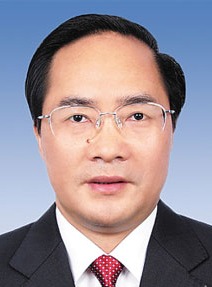
24 May, 2015
China forging ahead with widespread anti-graft drive
In the two years of the campaign, the anti-graft watchdog has ousted corrupt officials all the way from low-level “flies” to high-ranking “tigers.”
Yu Yuanhui, a member of the Communist Party of China’s (CPC) Standing Committee of the Guangxi Zhuang Autonomous Regional Committee, is the latest official placed under the spotlight.
It was announced on Friday that Yu, who is also Party secretary of Nanning, capital of Guangxi, was under investigation for alleged “severe disciplinary and law violations”.
Not content with just caging tigers and catching flies, the authorities aim to implement a permanent and effective anti-corruption system.
Leadership reshuffles at provincial-level discipline inspection agencies are one of the most recent efforts to rein in graft.
Wang Yanfei, former secretary of the Commission for Political and Legal Affairs of Ningxia Province, was appointed as head of the Sichuan provincial discipline inspection commission on Wednesday.
Six provinces had new heads of discipline inspection agencies installed in the first five months of 2015, while between 2012 to the end of 2014 only eight provinces saw leadership changes.
President Xi Jinping launched the unprecedented fight targeting Party, government, military and state-owned enterprises, soon after he came to power in late 2012. The CPC Central Commission for Discipline Inspection (CCDI) headed by Wang Qishan, has played a central role in the campaign.
In contrast with the high-profile drive by top graft-busters, local authorities failed to show their resolve to weed out corruption with some accused of not taking the fight seriously, and brushing problems under the carpet.
Critics have said that this new round of reshuffles would break long-standing connections between local governments and supervisors, making the local watchdogs more independent and powerful.
“The central authority needs to sharpen local supervisors’ ability to discover and investigate corruption,” said Xin Ming from the Party School of the CPC Central Committee.
The crackdown is not a one off campaign and the central authority has set about implementing institutional safeguards against graft.
In April, three documents were unveiled that gave more power to anti-graft watchdogs in their leadership selection, to increase the authority of discipline agencies.
The regulations clarify that potential leaders of provincial-level discipline inspection agencies will be nominated and assessed mainly by superior-level inspection agencies and organization departments.
Currently, each local discipline inspection agency is under the dual leadership of the CPC committee at the same level and the inspection agency of a superior level.
Many agencies are reticent to investigate or report corruption by the CPC committee at the same level.
The CPC has also targeted its rules in an effort to institutionalize the corruption purge.
During an inspection trip to coastal Zhejiang Province earlier this month, anti-graft chief Wang Qishan pledged to enhance institutional innovation and revise Party regulations on penalties.
The revisions should separate Party rules from legal provisions and give more emphasis to political discipline and regulation, he said.
In China, Party discipline is stricter than the law and Party regulations on disciplinary penalties serve as a fundamental guide for the CPC to punish its members.
“To strictly govern the Party, we must make discipline the bottom line that can not be crossed by Party members,” Wang said.
China’s corruption purge has seen hundreds of officials being investigated, ranging from Zhou Yongkang, once a member of the Standing Committee of the Political Bureau of the CPC Central Committee, to county-level officials. The campaign has gone so far as to try to hunt down corrupt officials that have fled abroad.
The anti-graft drive is a long fight and catching those that have already broken the law cannot completely eliminate corruption, Xin noted.
“As long as there is an effective system that ensures officials are unable to be corrupt, then corruption can be purged,” he added.




Liked this article? Share it!